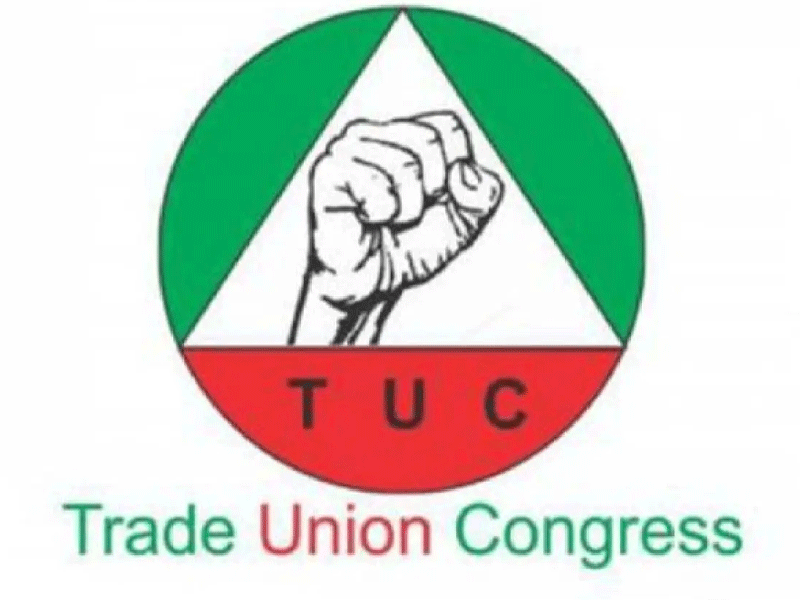
TUC
TUC insists nationwide strike goes on, backs Dangote Refinery shutdown
The organised labour movement in Nigeria has issued a severe warning to the Federal Government, threatening a total nationwide strike if it proceeds with a planned 5% tax on petroleum products.
The Trade Union Congress (TUC) condemned the proposed levy as a “reckless” and “economically wicked” act that would further cripple citizens already struggling with the removal of fuel subsidies, high inflation, and a weakened currency.
In a strongly-worded statement signed by its President, Festus Osifo, and General Secretary, Nuhu Toro, the TUC declared that the government must immediately reverse its decision.
It stated that failure to do so would force it to “mobilise Nigerian workers and the masses for a total nationwide resistance,” with a strike action “firmly on the table.”
The union directed all its state branches and affiliated organisations to be on high alert for a potential call to action.
It also called on civil society groups, professional associations, and all Nigerians to stand in solidarity against policies it says “seek to further impoverish citizens.”
Also, the Petroleum and Natural Gas Senior Staff Association (PENGASSAN) has thrown its full support behind the Nigeria Union of Petroleum and Natural Gas Workers (NUPENG), which plans to commence an industrial action against the Dangote Refinery.
The dispute centres on the refinery management’s alleged resistance to allowing its employees to unionise. PENGASSAN, in a statement by its General Secretary, Comrade Lumumba Okugbawa, accused Dangote of consistently resisting all diplomatic efforts to allow workers to join unions, a right guaranteed by Nigerian labour laws and international standards.
PENGASSAN warned that if the situation is not resolved through immediate dialogue, it would have “no option but to join in shutting down the refinery operations” to protect workers’ rights. It emphasised that the consequences of denying these rights would impact the entire industry.
Together, these developments place immense pressure on the government and major corporations, with the potent threat of simultaneous strikes that could paralyse the country’s economy and fuel supply.
